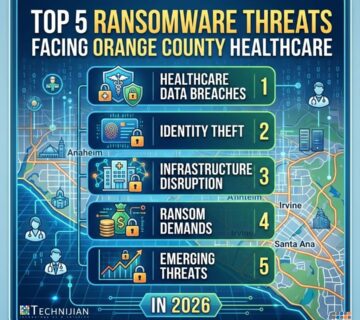Cybersecurity Breach: Halliburton Faces Major Cyberattack – A Growing Threat to the Energy Sector

On August 22, 2024, Halliburton, a leading US oilfield services company, was struck by a significant cyberattack, marking another alarming incident in the increasingly targeted energy sector. This breach, which disrupted operations at the company’s North Houston campus and impacted global networks, highlights the ongoing vulnerability of critical infrastructure to sophisticated cyber threats.
The Halliburton Cyberattack: What We Know So Far
The cyberattack on Halliburton has drawn significant attention due to the company’s pivotal role in the global energy industry. While specific details about the attack remain scarce, the company has confirmed that certain systems were affected, leading to disruptions in business operations. In response, Halliburton has engaged external cybersecurity experts to assess the damage, investigate the breach, and restore normal operations. Additionally, the company has advised some staff to avoid connecting to internal networks as a precautionary measure.
A Recurring Issue in the Energy Sector
This incident is part of a broader trend of cyberattacks targeting the energy sector, a critical industry whose disruption can have far-reaching consequences. The 2021 Colonial Pipeline ransomware attack, which resulted in widespread fuel shortages and price spikes across the United States, is a stark reminder of the potential impact such breaches can have. The attack on Halliburton serves as yet another wake-up call for the industry to bolster its cybersecurity defenses.
The Growing Threat of Ransomware
Although Halliburton has not yet disclosed the exact nature of the cyberattack, it is worth noting that ransomware has become a prevalent tool for cybercriminals. In ransomware attacks, hackers typically encrypt the victim’s data and demand a ransom in exchange for its release. Failure to comply with these demands can result in the leak of sensitive information, which can have devastating consequences for the targeted organization.
Ransomware attacks have evolved in sophistication, with cybercriminals employing increasingly advanced tactics to bypass security measures. The energy sector, with its complex and interconnected systems, presents a particularly attractive target for such attacks.
Why the Energy Sector is a Prime Target
The energy sector’s critical role in powering economies and maintaining essential services makes it a prime target for cyberattacks. A successful attack can not only cause financial losses for the affected company but also disrupt entire supply chains, leading to shortages, price increases, and even potential threats to national security.
In recent years, cybercriminals have recognized the value of targeting energy companies, as the stakes are incredibly high. The industry relies on complex networks of interconnected systems, many of which are outdated and vulnerable to attack. Furthermore, the global nature of the energy sector means that a breach in one region can have ripple effects worldwide.
The Industry’s Response to Growing Cyber Threats
In light of the increasing frequency and severity of cyberattacks, energy companies are investing heavily in cybersecurity measures. These efforts include enhancing network security, implementing robust incident response plans, and conducting regular security audits. However, the constantly evolving nature of cyber threats means that the industry must remain vigilant and adaptable.
Governments and industry regulators are also playing a crucial role in addressing the cybersecurity challenges facing the energy sector. In many countries, there is a growing emphasis on establishing stricter cybersecurity regulations and encouraging collaboration between the public and private sectors to share threat intelligence and best practices.
Lessons Learned from Halliburton’s Experience
While it is still too early to fully assess the impact of the Halliburton cyberattack, there are several key lessons that other organizations, particularly those in the energy sector, can learn from this incident:
- Proactive Cybersecurity Measures: Companies must prioritize cybersecurity by implementing proactive measures, such as regular vulnerability assessments, employee training, and the adoption of the latest security technologies.
- Incident Response Planning: Having a robust incident response plan in place is essential for minimizing the damage caused by a cyberattack. This includes clear protocols for communication, data recovery, and collaboration with external experts.
- Employee Awareness: Cybersecurity is not just the responsibility of the IT department. Employees at all levels must be aware of the risks and trained to recognize potential threats, such as phishing attempts and suspicious network activity.
- Collaboration and Information Sharing: The energy sector must continue to foster collaboration between companies, governments, and cybersecurity experts to share intelligence and develop industry-wide best practices.
The Road Ahead: Strengthening Cybersecurity in the Energy Sector
As the Halliburton incident demonstrates, the energy sector remains a prime target for cybercriminals. The increasing reliance on digital systems and the interconnected nature of the industry mean that the stakes are higher than ever. To safeguard against future attacks, energy companies must continue to invest in cutting-edge cybersecurity technologies and adopt a proactive approach to threat detection and mitigation.
Moreover, the industry must embrace a culture of continuous improvement, where lessons learned from past incidents inform future strategies. By staying ahead of emerging threats and fostering a collaborative approach to cybersecurity, the energy sector can better protect itself against the growing menace of cyberattacks.
How Technijian Can Help
In an era where cyber threats are becoming increasingly sophisticated and pervasive, organizations need more than just standard security measures. Technijian offers tailored cybersecurity solutions designed to address the unique challenges faced by the energy sector. Our services include:
- Advanced Threat Detection: Utilizing cutting-edge technology to detect and neutralize threats before they can cause harm.
- Incident Response Planning: Developing and implementing comprehensive incident response strategies to minimize downtime and mitigate damage.
- Employee Training Programs: Educating your workforce on the latest cybersecurity threats and best practices to ensure a vigilant and informed team.
- Regular Security Audits: Conducting thorough assessments of your systems to identify vulnerabilities and recommend improvements.
By partnering with Technijian, energy companies can fortify their defenses, ensuring they are better prepared to face the evolving landscape of cyber threats. Our expertise helps you revisit and reinforce your security measures, ensuring your organization is resilient in the face of future challenges.
Frequently Asked Questions (FAQs) About the Halliburton Cyberattack
1. What happened during the Halliburton cyberattack?
The Halliburton cyberattack occurred on August 22, 2024, affecting the company’s systems and disrupting operations at its North Houston campus and across its global networks. The specific details of the attack have not been fully disclosed, but it has prompted the company to engage external cybersecurity experts to investigate and mitigate the impact.
2. How did the cyberattack impact Halliburton’s operations?
The attack caused significant disruptions to Halliburton’s business operations, particularly at their North Houston campus. Some systems were compromised, leading to a temporary halt in certain activities. The company advised employees to refrain from connecting to internal networks as a precautionary measure while the issue was being addressed.
3. Is there any information on who was responsible for the attack?
As of now, Halliburton has not released any information regarding the perpetrators of the attack. Typically, cyberattacks of this nature involve sophisticated cybercriminal groups, and investigations are often ongoing for some time before details are made public.
4. Was customer or employee data compromised during the attack?
Halliburton has not provided specific information about whether customer or employee data was compromised. However, in similar attacks, there is often a risk of sensitive information being accessed or stolen. The company is working with cybersecurity experts to assess the extent of the breach and secure any exposed data.
5. What steps is Halliburton taking to address the cyberattack?
Halliburton is collaborating with external cybersecurity experts to investigate the breach, restore affected systems, and enhance their security measures to prevent future incidents. They have also implemented precautionary measures, such as advising employees to avoid using internal networks until the situation is resolved.
6. How common are cyberattacks in the energy sector?
Cyberattacks in the energy sector are becoming increasingly common due to the critical nature of the industry’s infrastructure. High-profile incidents like the 2021 Colonial Pipeline ransomware attack have underscored the vulnerability of energy companies to such threats, making cybersecurity a top priority for the sector.
7. What is ransomware, and why is it a significant threat?
Ransomware is a type of malware that encrypts a victim’s data, rendering it inaccessible until a ransom is paid to the attackers. It is a significant threat because it can severely disrupt operations, cause financial losses, and lead to the exposure of sensitive information if demands are not met. The energy sector, due to its critical infrastructure, is particularly susceptible to these kinds of attacks.
8. How can companies in the energy sector protect themselves from cyberattacks?
Companies in the energy sector can protect themselves by investing in robust cybersecurity measures, including advanced threat detection, employee training, regular security audits, and comprehensive incident response planning. Collaboration with cybersecurity experts and sharing intelligence within the industry are also vital strategies for mitigating risks.
9. What should other energy companies learn from the Halliburton incident?
The Halliburton incident highlights the importance of proactive cybersecurity measures, including the need for continuous monitoring, employee awareness, and having a strong incident response plan in place. It also underscores the value of collaboration and information sharing within the industry to enhance overall security preparedness.
10. How can Technijian assist companies in preventing and responding to cyberattacks?
Technijian offers specialized cybersecurity services tailored to the energy sector, including advanced threat detection, incident response planning, employee training, and regular security audits. By partnering with Technijian, companies can strengthen their defenses against cyber threats, ensuring they are better prepared to prevent and respond to attacks like the one experienced by Halliburton.
About Us
Technijian is a premier provider of managed IT services in Orange County, dedicated to delivering top-tier IT solutions that empower businesses to thrive in today’s fast-paced digital landscape. With a strong focus on reliability, security, and efficiency, we specialize in offering comprehensive IT services across Orange County, tailored to meet the unique needs of each client.
Located in the heart of Irvine, Technijian has built a reputation as a trusted partner for businesses seeking robust IT support in Irvine and beyond. Our team of experts is committed to ensuring that your technology infrastructure is always optimized, secure, and aligned with your business goals.
As a leader in managed IT services in Orange County, we understand the challenges that businesses face in maintaining and advancing their IT environments. That’s why we offer a full spectrum of services, from proactive monitoring and maintenance to strategic consulting and disaster recovery. Our goal is to provide seamless IT services that reduce downtime, enhance productivity, and give you peace of mind.
At Technijian, we pride ourselves on our ability to deliver customized IT solutions that not only meet but exceed the expectations of our clients. Whether you’re a small business or a large enterprise, our managed services in Orange County are designed to scale with your needs and support your growth.
Experience the difference with Technijian—where excellence in IT support and managed services in Orange County is not just our business, but our passion. Let us be your technology partner, guiding you through the complexities of today’s IT landscape and helping you achieve your business objectives with confidence.





